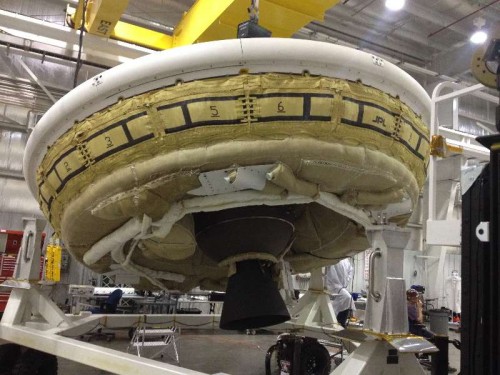
NASA’s Low-Density Supersonic Decelerator (LDSD), a spacecraft that aims to facilitate the safe landing of future Mars missions, has earned a place in the the Popular Science magazine’s “Best Of What’s New” list.
The NASA project, also known as the “flying saucer”, won the award in the aerospace category.
“Landing safely on an alien planet requires drastic braking at hypersonic speeds. To practice techniques for slowing down, NASA’s Jet Propulsion Laboratory built the LDSD,” Popular Science said.
Current Mars landing techniques date back to NASA’s Viking mission, which put two landers on Mars in 1976. The mission’s parachute design has been in use ever since.
To conduct advanced exploration missions in the future, however, NASA must advance the technology to a new level of sophistication since Viking-style parachutes’ capabilities are limited.
The LDSD project successfully flew a rocket-powered, saucer-shaped test vehicle into near-space in late June from the US Navy’s Pacific Missile Range Facility in Kauai, Hawaii.
The goal of this experimental flight test, the first of three planned for the project, was to determine if the balloon-launched, rocket-powered, saucer-shaped design could reach the altitudes and airspeeds needed to test two new breakthrough technologies destined for future Mars missions.